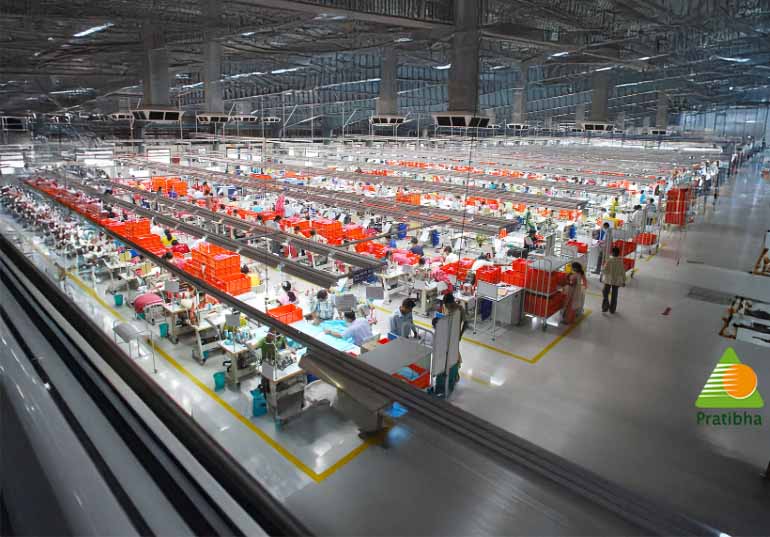STITCH X PRATIBHA
Pratibha Syntex, founded in 1997, is a vertically-integrated, sustainability-oriented apparel manufacturer and exporter, providing comprehensive fiber-to-fashion solutions. Collaborating with 35,000 farmers and 10,000 employees, the company produces over 60 million garments annually for renowned global brands. Pratibha’s operations span across all stages of textile production—from spinning and weaving to garment manufacturing. However, with the global competition intensifying and the pressure to meet fluctuating market demands, Pratibha recognized that its legacy systems and manual processes were no longer enough. The need for a more agile, efficient, and quality-driven operation was clear.
The Challenge
Pratibha faced challenges in optimizing production processes to meet the evolving demands of global brands. The reliance on manual systems affected production efficiencies and led to inconsistencies in quality control across multiple facilities. Additionally, the absence of real-time operational insights hindered swift, data-driven decision-making, particularly during supply chain disruptions. To enhance efficiency, ensure consistent quality, and gain actionable operational insights, Pratibha recognized the need to modernize its production processes.
The Solution: Embracing Digital Transformation
To tackle these challenges, Pratibha partnered with Stitch, a digital solutions provider specializing in Manufacturing Execution Systems (MES). Stitch was the preferred solution to integrate data across the entire supply chain, automate manual tasks, and enhance quality control throughout the production process.
With the Stitch solution in place, Pratibha Syntex could now monitor production in real time, automate quality inspections, and gain visibility into every aspect of the production chain. They thrived to reduce human error, optimize production schedules, and improve decision-making, all the while maintaining high standards of quality at every stage of production.
The Impact
Pratibha is now able to track production in real time, respond quickly to quality issues, and production disruptions, and make faster, more informed decisions. The integration of automated quality control measures has resulted in consistent, high-quality outputs and significantly reduced the number of defects.
Some of the key benefits include:
- Improved Quality Control- Real-time monitoring ensures that quality standards are met throughout the production processes. Digitized inspections have helped minimize defects, reduced rework, and improved customer satisfaction.
- Operational Agility- With access to real-time data, Pratibha can now adjust production schedules quickly in response to market demands or disruptions, enabling us to stay ahead of customer expectations.
- Streamlined Production- Automation has reduced the time spent on manual tasks, leading to faster production cycles, fewer errors, and greater efficiency across departments.
- Enhanced Supply Chain Visibility- The ability to track every stage of production in real time has improved supply chain visibility, allowing the company to better manage inventory and avoid bottlenecks.
Looking to the Future
For Pratibha Syntex, the journey of digital transformation doesn’t end here. The company plans to continue evolving its digital system adoption space, integrating advanced analytics and AI to further optimize production and improve decision-making. By leveraging these technologies, Pratibha aims to stay ahead of the curve, ensuring that it remains at the forefront of innovation in the textile industry.
In an industry where efficiency, quality, and agility are key to success, Pratibha’s embrace of digital technology has enabled them to thrive in an increasingly competitive market. Their story serves as an inspiration for other manufacturers looking to modernize their operations and stay ahead in the digital age.


